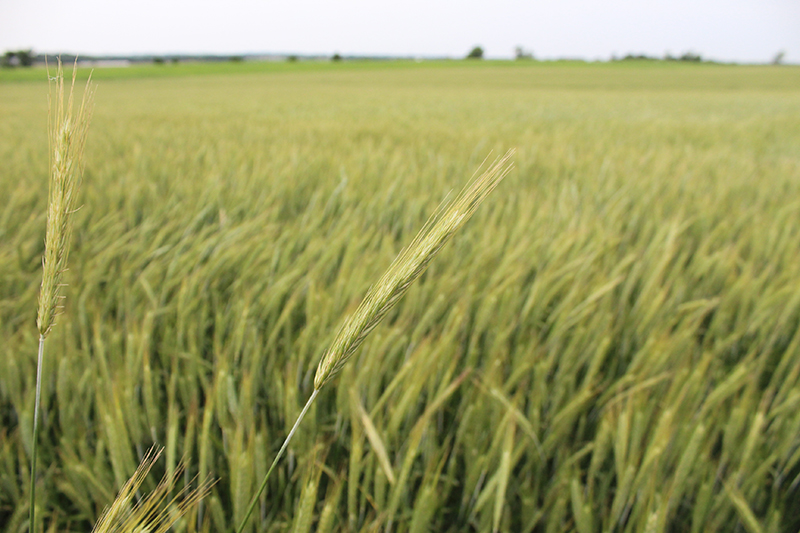Four upcoming field days in Iowa, Minnesota, and Wisconsin will showcase the power of hybrid winter rye for feed, forage, and food/distillation markets.
Farmers are well-familiar with the weed-suppressing benefit of cereal rye, commonly grown as a winter-hardy cover crop in the Upper Midwest. However, winter rye is not typically grown for the grain in the U.S. Planted in the fall, cereal rye often is terminated in the spring to rotate into a cash crop.
Hybrid rye is different. It’s grown as a third crop with triple the yield potential of traditional rye varieties. Traditional winter rye yields 30-60 bushels per acre, but hybrid rye varieties can yield three times more than open-pollinated varieties. It is not uncommon to hear reports of 100 – 140 bushels per acre yields on hybrid rye.
With its low input management, hybrid rye is a crop that lets farmers spread out their workload. It’s planted after corn harvest (when most fall field work is already completed) using their existing seed drills or Brillion seeders. It’s then harvested in July or August – typically “slower” periods for crop farmers – which even allows enough time to establish another cover crop in the rye stubble.
“Midwest farmers can easily integrate hybrid rye into their corn-soybean rotation,” said Claus Nymand, Product Manager for KWS Cereals. He cited soybeans as an excellent crop to follow hybrid rye in rotation followed by corn. “It >can follow any crop that allows planting in September, but it performs best with early fall planting following a short-season crop species other than a grass, such as early soybeans, hay, or legume cover crops.”
KWS, who developed a line of high-yielding hybrid rye varieties, is teaming up with Albert Lea Seed and four local hybrid rye producers for a series of on-farm field days to describe the basics of growing hybrid rye, finding markets, and feeding livestock with small grains with four event locations and dates across Iowa, Minnesota, and Wisconsin:
- June 13, 2019 – West Union, Iowa
- June 17, 2019 – Balaton, Minnesota
- July 9, 2019 – Elkton, Minnesota
- July 11, 2019 – Cambridge, Wisconsin
For event specifics, including specific start times and location information, visit https://alseedfielddays.com.
